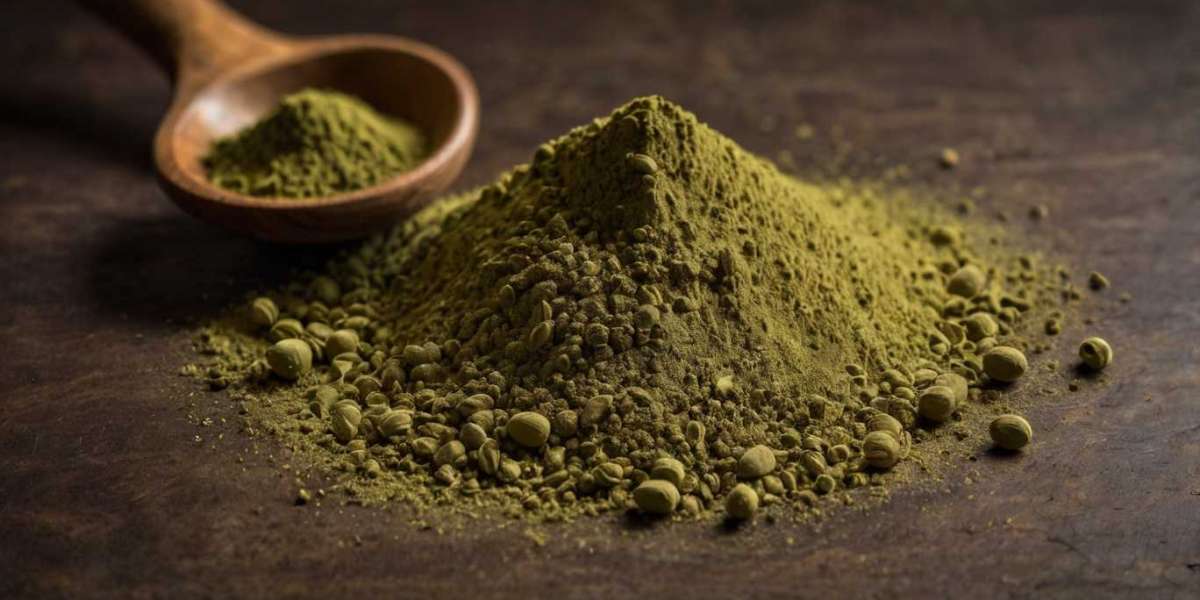 Kratom, also known as Mitragyna speciosa, is a tropical tree native to Southeast Asia. It has gained popularity in recent years for its potential medicinal properties, but it has also sparked controversy due to concerns about its safety and potential for abuse. In this article, we will take a closer look at what kratom is, how it is used, its potential benefits and If you beloved this post and you would like to obtain extra info concerning Pause subscription kindly stop by our own web-site. risks, and the current legal status of this plant.
Kratom, also known as Mitragyna speciosa, is a tropical tree native to Southeast Asia. It has gained popularity in recent years for its potential medicinal properties, but it has also sparked controversy due to concerns about its safety and potential for abuse. In this article, we will take a closer look at what kratom is, how it is used, its potential benefits and If you beloved this post and you would like to obtain extra info concerning Pause subscription kindly stop by our own web-site. risks, and the current legal status of this plant. What is Kratom?
What is Kratom?Kratom is a member of the coffee family and has been used for centuries in traditional medicine in Southeast Asia. The leaves of the kratom tree contain compounds called alkaloids, such as mitragynine and 7-hydroxymitragynine, which have been found to have various effects on the body. These alkaloids act on the opioid receptors in the brain, producing effects similar to opioids but with different mechanisms of action.
Kratom is typically consumed by chewing the leaves, brewing them into a tea, or grinding them into a powder that can be mixed with water or other beverages. It can also be taken in the form of capsules or tablets. The effects of kratom can vary depending on the dose and strain of the plant, with low doses producing stimulant effects and higher doses producing sedative effects.
Potential Benefits of Kratom
Proponents of kratom claim that it has several potential benefits, which have led to its use in alternative and herbal medicine. Some of the reported benefits of kratom include:
- Pain relief: Kratom has analgesic properties and is commonly used to alleviate chronic pain conditions such as arthritis, fibromyalgia, and back pain. Some users have reported that kratom is an effective alternative to prescription pain medications.
- Mood enhancement: Kratom is known to produce feelings of euphoria and relaxation, which can help improve mood and reduce symptoms of depression and anxiety. Some users have found kratom to be helpful in managing stress and promoting a sense of well-being.
- Energy boost: Low doses of kratom can act as a stimulant, providing users with increased energy, focus, and alertness. This can be particularly beneficial for individuals who need a natural pick-me-up without the jitters or crash associated with caffeine.
- Opioid withdrawal: Some people use kratom to alleviate symptoms of opioid withdrawal, as it can help manage cravings, reduce pain and discomfort, and improve mood during the detox process. However, it is important to note that kratom itself can be addictive and may not be a safe alternative for everyone.
- Cognitive enhancement: Kratom has been reported to improve cognitive function, memory, and concentration, making it potentially useful for individuals looking to boost their mental performance. Some users find that kratom helps them stay focused and productive throughout the day.
Risks and Side Effects of Kratom
While kratom may offer several potential benefits, it is not without risks and side effects. Some of the known risks associated with kratom use include:
- Addiction and dependence: Kratom contains alkaloids that can lead to physical dependence and addiction with regular use. Withdrawal symptoms such as cravings, irritability, insomnia, and muscle aches may occur when someone stops taking kratom abruptly.
- Respiratory depression: High doses of kratom can cause respiratory depression, a potentially dangerous condition in which breathing slows down or stops. This effect is similar to that of opioids and can be life-threatening in severe cases.
- Liver toxicity: There have been reports of liver damage and toxicity associated with kratom use, particularly in individuals who consume large amounts of the plant or use it in combination with other substances. Liver function tests are recommended for long-term kratom users to monitor for any signs of liver damage.
- Nausea and vomiting: Some users may experience gastrointestinal side effects such as nausea, vomiting, and stomach upset when taking kratom. These symptoms are more common with higher doses and may subside with time or by adjusting the dosage.
- Interactions with medications: Kratom can interact with certain medications and supplements, potentially leading to adverse reactions or reduced effectiveness of the drugs. It is important to consult a healthcare provider before using kratom if you are taking any prescription medications.
- Contamination and adulteration: The kratom market is largely unregulated, and there have been cases of contamination with heavy metals, bacteria, and other harmful substances in kratom products. It is essential to purchase kratom from reputable sources to avoid these risks.
Legal Status of Kratom
The legal status of kratom varies by country and region, with some places banning its sale and use due to concerns about safety and abuse potential. In the United States, kratom is legal on a federal level but is banned in several states and municipalities. It is classified as a Schedule I controlled substance in some jurisdictions, meaning that it is considered to have a high potential for abuse and no accepted medical use.
In countries such as Thailand and Malaysia, where kratom is indigenous, its use has been banned or restricted due to concerns about drug abuse and addiction. However, there are ongoing efforts in some of these countries to legalize or regulate kratom for medicinal and research purposes.
Conclusion
Kratom is a plant with a long history of traditional use in Southeast Asia, and it has gained popularity in recent years for its potential medicinal properties. While some people use kratom to manage pain, enhance mood, and improve energy levels, it is important to be aware of the risks and side effects associated with its use. Kratom can be addictive, cause respiratory depression, liver toxicity, and other adverse effects, especially when used in high doses or in combination with other substances.
Before using kratom, it is essential to consult a healthcare provider to discuss the potential benefits and risks, as well as any interactions with medications you may be taking. It is also crucial to purchase kratom from reputable sources to ensure that you are getting a high-quality product free from contamination or adulteration.
 Overall, while kratom may have some potential benefits for certain individuals, it is not a panacea and should be used cautiously and responsibly. More research is needed to fully understand the effects of kratom on the body and mind, as well as its long-term consequences. In the meantime, it is crucial to approach kratom with caution and to be informed about its potential risks before using it for any purpose.
Overall, while kratom may have some potential benefits for certain individuals, it is not a panacea and should be used cautiously and responsibly. More research is needed to fully understand the effects of kratom on the body and mind, as well as its long-term consequences. In the meantime, it is crucial to approach kratom with caution and to be informed about its potential risks before using it for any purpose.








